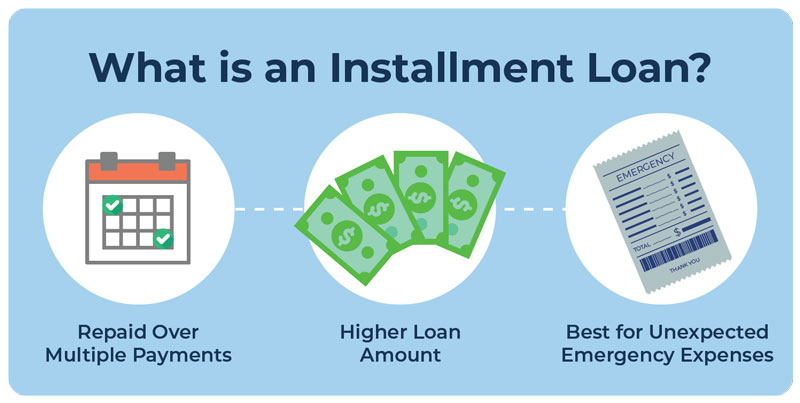Do your parents plan to retire soon or recently? Taking care of aging parents can be difficult, but long-term care insurance may help you repay part of the costs you spent taking care of them or handle the cost of their other last desires. Benefits from the policy cannot be used before death unless a few limitations are satisfied.
If you want to be sure your parents have the proper protection, you should speak with them. Everything you need to know about buying your parent's long-term care insurance will be explained in this article. Let's get started!
Understanding Long-Term Care Insurance
A long-term care insurance policy acts as a future security blanket for your family. It's a specific type of insurance made to pay for additional medical services, particularly ones required due to aging, chronic illness, or disabilities.
Long-term care insurance steps in when your parents age or get a chronic illness that makes it necessary for them to need help with everyday tasks like eating, dressing, and bathing. It enables your parents to receive the care they require by helping to pay for costs that health insurance may not be able to handle fully.
Things to Know about Long-Term Care Insurance for Parents

Several kinds of help and assistance, known as long-term care, are given to those who are unable to take care of themselves because of age-related illnesses and disabilities. This is a detailed guide to assist you in selecting the right policy for your needs.
Secure Senior Care Insurance Early
The most common error people make is delaying thinking about long-term care insurance for too long. Many seniors wait until their health is too bad to qualify for coverage because providers are making it harder to get approved. When your parents are still in excellent health and between the ages of 50 and 65, it is the best time to apply for long-term care insurance. It will be more difficult for your parents to be considered the longer you wait.
Understand How Premiums Are Calculated
The two main requirements are age and general health, similar to those for other kinds of health insurance. Your parents' payments will be less expensive the younger and healthier they are.
Because they live longer than males, women usually earn greater salaries. The extent of coverage, daily benefit amount, benefit term, and protection against inflation are other variables that affect the price of insurance.
Avoid Purchasing Too Little or Too Much Insurance
It's true that you receive what you pay for. Everyone enjoys saving money. When the time comes, the lowest insurance policy cannot offer nearly as much insurance as you actually need.
As you become older, it gets harder to get better insurance. However, you also don't want to overpay for insurance that offers more coverage than you'll actually use. Remember that your parents' savings may be utilized to partially pay for their care if they have any.
Choose the Right Insurance Place
Speak with a financial adviser or insurance agent if you think that buying long-term care insurance for your aging parents is the best choice for the family. Since every state has different laws and rules, you'll need to find out what your parents' or your own place of residence provides.
Additionally, a few states participate in a partnership program that connects private health insurance providers with state projects.
Know Your Alternatives
Elder care insurance for parents can or may not prove to be the best choice for your family, depending on their situation. Your parents might be able to pay for it directly from their pocket using their retirement funds, or they might decide to buy a life insurance policy that would help with long-term care costs.
Other families may benefit more from accelerated death benefits resulting from a life insurance policy or short-term care insurance. To see what choices are available in your area, speak with your insurance representative.
Types of Long-Term Care Insurance
There are two kinds of long-term care insurance that serve different budgets and needs. It's important to have a thorough understanding of your choices before buying long-term care insurance for your parents.
Traditional Long-Term Care Insurance
Conventional long-term care insurance is a cheap, isolated policy that is simple to comprehend. If you ever need long-term care, this insurance will help pay for it.
If long-term care insurance is all you need, traditional written long-term care insurance might be your best bet. Your parents will be entitled to the traditional LTCI policy if they are unable to do two or more of the six activities required for everyday living.
Hybrid Long-Term Care Insurance
Combining life and long-term care insurance is an additional choice. If your parents don't require care, the recipients get the entire amount. The rates are called endless because this indicates that lifelong costs are fixed.
Hybrid insurance coverage will cost you thousands more than an average long-term care insurance policy, so be ready for that. This is due to the fact that life insurance, which may not even be needed, is also obtained along with long-term care insurance. Unlike normal long-term care insurance for parents, payments for hybrid policies are not deducted from taxes.
Importance of Long-Term Care Insurance

Planning long-term care needs reduces the financial stress that might result from unplanned conditions. You can better manage the costs of assisted living, home care, and skilled nursing services if you have long-term care insurance.
Your parents could have to eliminate assets or take money out of savings to pay for long-term care if they don't have enough insurance. Their hard-earned assets can be protected by long-term care insurance, giving you and them peace of mind.
Conclusion
Buying your parents long-term care insurance is a financial decision that will give them safety and peace of mind. You provide your parents the ability to age with dignity by being responsible and obtaining suitable insurance.
It ensures that their medical requirements will not interfere with their ability to maintain their financial stability. Make the decision now to give your parents the love and support that they deserve in the future.



